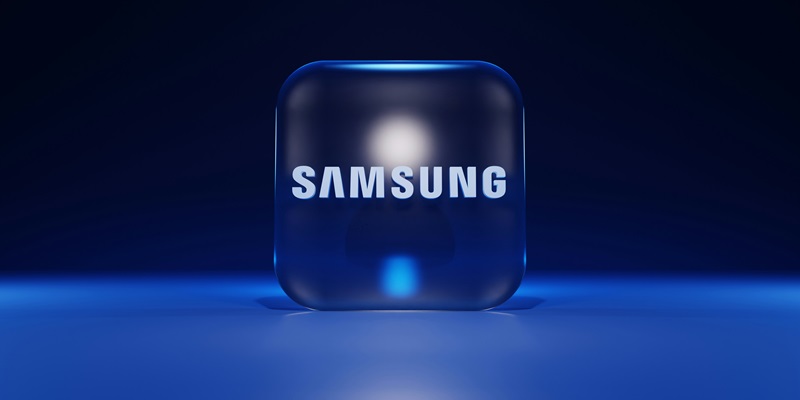Samsung’s flagship smartphones have long been synonymous with the high-performing Exynos and Snapdragon chipsets. However, a recent slip by Google may hint at a substantial shift in this strategy, suggesting that MediaTek’s Dimensity 9400 chip could power the upcoming Galaxy S25 series. This accidental revelation originates from a blog post on Google DeepMind’s website, where "Samsung mobile phones" were mentioned in association with MediaTek’s flagship chips. This potential development marks a departure from Samsung’s traditional use of Dimensity processors, which have historically been reserved for mid-range devices.
Historical Context and Current Implications
Samsung’s Track Record with MediaTek
The collaboration between Samsung and MediaTek is not unprecedented. MediaTek’s high-end hardware has already been incorporated into Samsung’s product lines, notably in the Galaxy Tab S10 series. Before this, the general perception was that MediaTek’s Dimensity chips were primarily used in mid-tier devices, leaving the flagship smartphones to be powered by the more established Exynos or Snapdragon processors. Nevertheless, the mention of "flagship" by Google suggests an imminent shift. This revelation lines up with a broader shift within the tech industry, where companies seek to diversify their supply chains, thus mitigating risks and leveraging top-tier performance from multiple chip vendors.
This potential shift has far-reaching implications. If Samsung indeed opts for the Dimensity 9400 in the Galaxy S25, it will be a significant endorsement of MediaTek’s capability to compete at the highest levels of performance. Such a move could influence other smartphone manufacturers to reconsider their chipset suppliers, thereby intensifying the competition among the major chipset producers. MediaTek has been vying to shed its image as a supplier for mid-range devices, and Samsung’s adoption for its flagship model could be a game-changer, potentially allowing MediaTek to secure more high-end contracts.
Google’s Inadvertent Disclosure
The blog post on Google DeepMind’s site went beyond casual mention, explicitly describing MediaTek’s AlphaChip as enhancing their most advanced chips, like the Dimensity Flagship 5G. This specificity not only suggests but virtually confirms that Samsung’s flagship phones, rather than tablets, will be the beneficiaries of this high-end technology. The detailed nature of the description within the post leaves little room for misinterpretation, strongly supporting the idea that Samsung’s next flagship series may indeed feature MediaTek’s Dimensity 9400.
It’s also worth noting that this disclosure aligns with whisperings and rumors within the industry. Previous leaks had hinted that Samsung was considering a pivot to MediaTek chips due to suboptimal yields from the Exynos 2500. The lingering question is the extent to which the Dimensity 9400 will be integrated across the Galaxy S25’s various models. Given that the Galaxy S25 Ultra is confirmed to use the Snapdragon 8 Gen 4 for Galaxy, it remains plausible that lower-tier models might still leverage MediaTek’s chipset to balance cost and performance, providing a diversified portfolio.
Implications for Future Samsung Flagships
The Shift from Exynos and Snapdragon
Samsung’s historical reliance on Exynos and Snapdragon processors for their flagship devices has established a certain expectation among consumers. The move to MediaTek’s Dimensity 9400 signifies a noteworthy shift in strategy. Exynos processors, developed in-house, have faced criticism for their performance discrepancies compared to Snapdragon counterparts, particularly in markets where performance is paramount. In light of these concerns, the MediaTek Dimensity 9400 represents an opportunity for Samsung to standardize high performance across markets by ensuring more uniformity in their flagship devices’ performance.
Such a transition, however, also raises questions regarding consumer reception. Will fans of Samsung’s flagship series embrace the Dimensity 9400, given their familiarity and historical satisfaction with Exynos and Snapdragon processors? The answer likely depends on MediaTek’s ability to meet or exceed the performance standards set by industry benchmarks. Consumers are bound to scrutinize these new devices, assessing whether MediaTek’s offerings truly measure up to their expectations for a Samsung flagship.
Broader Industry Trends
Samsung’s leading smartphones have traditionally been linked with the top-tier Exynos and Snapdragon chipsets. However, a recent unintentional disclosure by Google might signal a notable shift in Samsung’s strategy, indicating that the forthcoming Galaxy S25 series could be equipped with MediaTek’s Dimensity 9400 chip. This unexpected piece of information comes from a blog post on Google DeepMind’s website, where "Samsung mobile phones" were cited in conjunction with MediaTek’s top-tier chips.
Historically, Samsung has primarily utilized Dimensity processors for its mid-range phones, making this potential update quite significant. This shift could indicate a strategic move towards diversifying their component sourcing or experimenting with different performance benchmarks to compete robustly in the high-end smartphone market. If Samsung indeed adopts MediaTek’s Dimensity 9400 for the Galaxy S25, it will represent a significant transformation in their hardware approach. Therefore, this development is something both industry analysts and consumers will be watching closely in the coming months.

